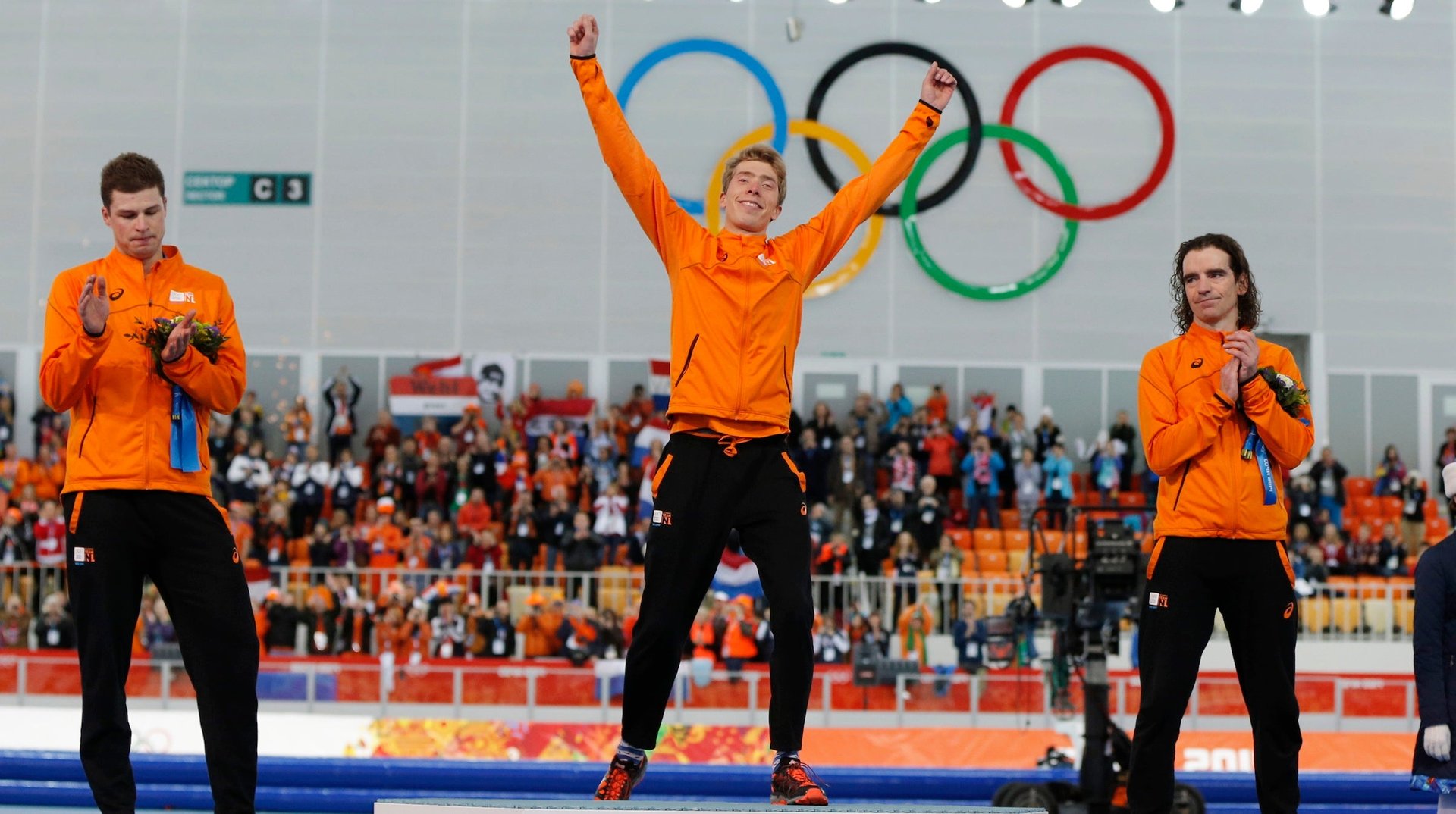What the Netherlands’ complete dominance in speed skating says about success
Part of the beauty of the Olympics is that despite its size, one country can dominate an entire sport. At Sochi, the biggest winner in that regard has been the Netherlands, a country with less than a fifth as many Olympic athletes as the US, that has won 21 medals (soon to be 22) so far in long track speed skating.


Part of the beauty of the Olympics is that despite its size, one country can dominate an entire sport. At Sochi, the biggest winner in that regard has been the Netherlands, a country with less than a fifth as many Olympic athletes as the US, that has won 21 medals (soon to be 22) so far in long track speed skating.
It’s a record for a single country in an Olympics, and a reminder that the greatest success comes from monopolizing on your advantage and putting serious resources behind it. Luck can win a solitary medal, but not 21 of them.
The Dutch haven’t just won lots of medals. They have swept the entire podium in four different events, in three men’s events and one women’s. Of the 28 medals awarded in speed skating so far, they’ve won 75%, and 6 of the 10 golds. The team expected to improve on the 9 medals they won in Vancouver, but have more than doubled their take in a showing of complete dominance.
There are a few reasons for this success: The Dutch tend to be relatively tall. They report an average height above 6 feet, which is an advantage in speed skating because it allows for taking long strides. The country is flat, filled with cities, and riddled with canals. It gets little snow, so there’s a long tradition of skating as a form of transportation, and almost none of say, alpine or nordic skiing.
According to the International Olympic Committee, the Dutch started skating as early as the 13th century to get around in the winter. It’s believed that they held the first skating competition in 1626. There’s even a massive, culturally cherished 120-mile race on natural ice called the Elfstedentocht (Eleven cities tour) held in a northern province when the weather is cold enough.
Skating is deeply ingrained in the culture and competes with only soccer for popularity in the country. Top skaters are revered, stands are packed with orange-clad supporters, and many top athletes go into speed skating rather than sports more popular elsewhere. Competitors start young, are coached by former Olympic medalists, and have access to some of the world’s best facilities. The US, for example, has two training ovals for speed skaters—the Netherlands has 17.
Also, being a skater is a good way to make a living in the Netherlands. There are seven commercial teams with about 60 professionals. And the coaching strategy focuses on team success rather than individuals.
The talent pool is so deep that the Dutch Olympic trials (held in December) are one of the most competitive skating competitions in the world. The skaters that made it to Sochi come from an unmatched pool of talent.
The result has been unprecedented dominance from stars like Ireen Wust and Sven Kramer, and the entire team.
Success can come from being in the right place at the right time. But it usually takes years spent building a culture, facilitating talent, making investment, and then seizing on the right moment.